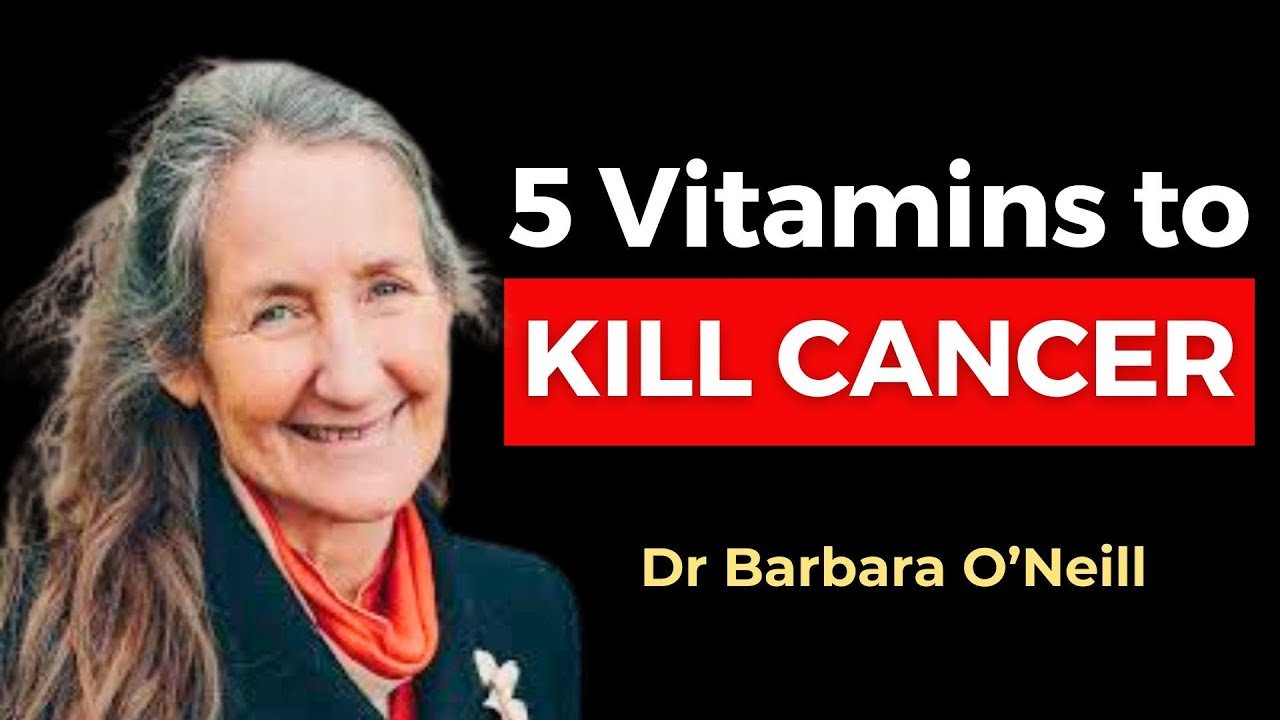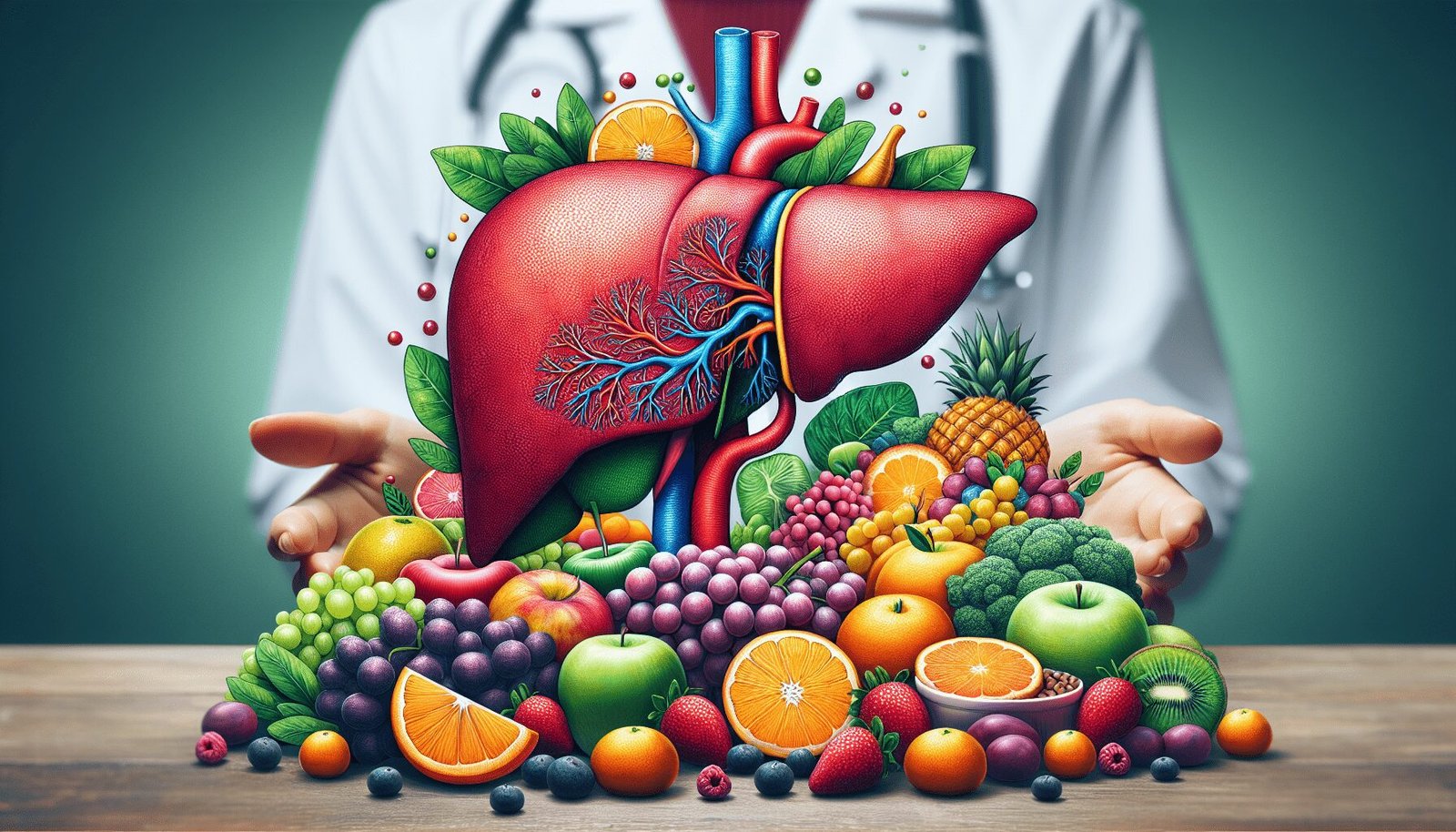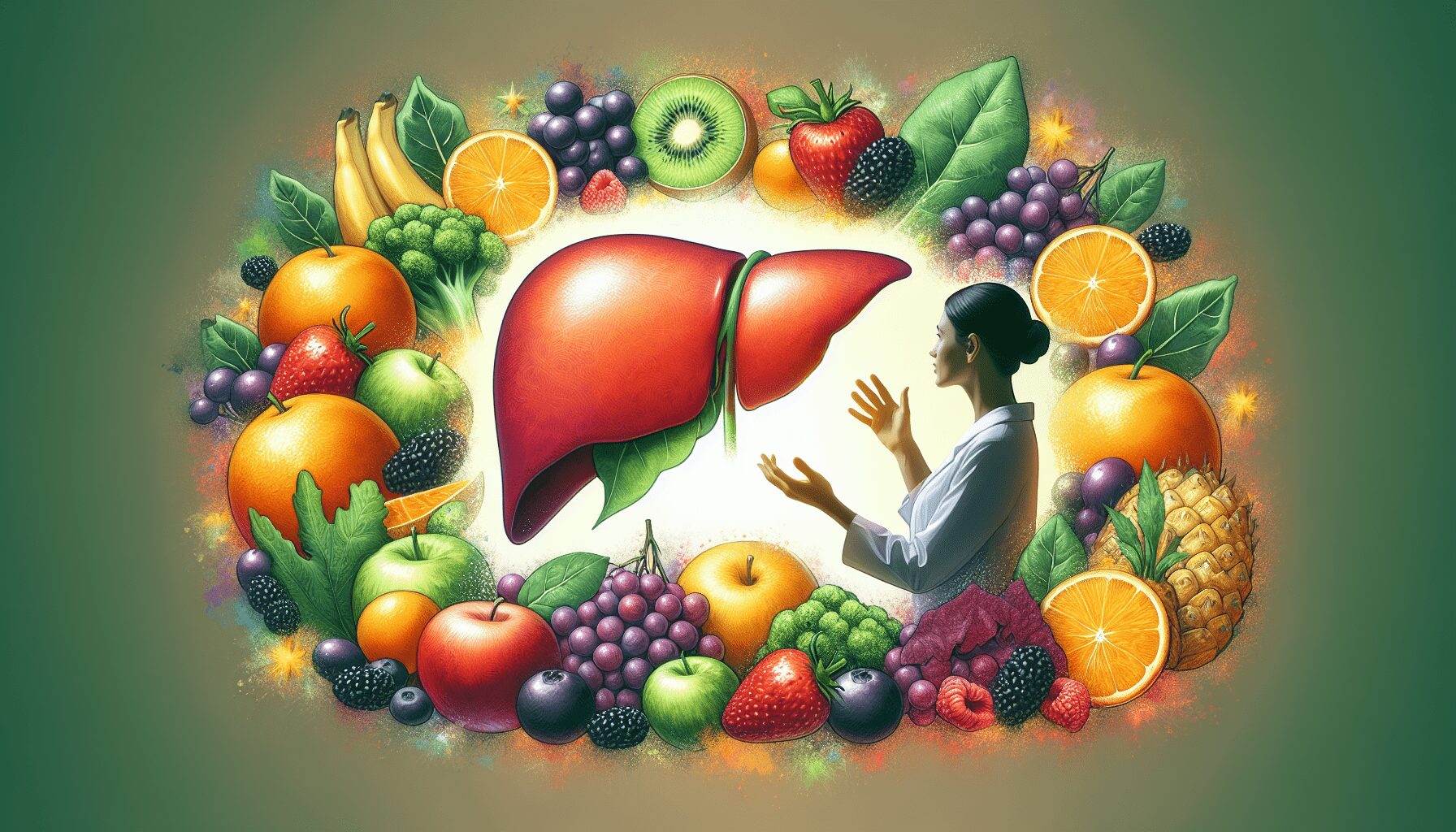In “The Liver’s Protective Role and Essential Vitamins: Insights from Barbara O’Neill,” you’re introduced to the invaluable teachings of Barbara O’Neill, a celebrated health educator from Australia. This piece highlights the liver’s crucial function in detoxifying the body and shielding it from cancer while stressing the importance of maintaining this organ through proper nutrition.
You’ll gain knowledge about five essential vitamins that significantly support liver health, such as Beta Carotene, Vitamin C, and Vitamin D. The article also covers how to optimally intake necessary minerals from natural sources, emphasizing the benefits of an organic and balanced diet.
The Liver’s Protective Role
The liver, often heralded as the body’s detox powerhouse, plays a monumental role in maintaining your well-being. Barbara O’Neill, an internationally known Australian health teacher, highlights three crucial functions of the liver: detoxification, waste elimination, and defense against cancer. Let’s delve into why your liver’s health is paramount.
Detoxifies the Body
Your liver is akin to a vigilant gatekeeper, meticulously screening everything that enters your bloodstream. It filters out toxins, drugs, and other potentially harmful substances, breaking them down into less harmful elements or preparing them for elimination. Picture it as a sophisticated processing plant; its complex mechanisms ensure that metabolic waste and environmental toxins do not wreak havoc on your body.
Eliminates Waste
Beyond detoxification, your liver is a master waste manager. It processes and eliminates old, damaged blood cells and metabolic waste products like ammonia. This organ converts these waste materials into substances that can be excreted through bile or urine, ensuring that your body remains clean and functional. It’s a continuous, silent operation that keeps your internal systems running smoothly.
Protects Against Cancer
Perhaps most impressively, a healthy liver plays a crucial role in protecting your body against cancer. By neutralizing carcinogens—substances capable of causing cancer—before they can cause cellular damage, your liver serves as a formidable line of defense. Barbara O’Neill emphasizes that cancer struggles to thrive when the liver is functioning at its optimum capacity. This makes liver health not just important, but vital.
Importance of Antioxidants
In the ongoing battle against cellular damage and disease, antioxidants emerge as your unsung heroes. They play pivotal roles in neutralizing free radicals, boosting cellular health, and preventing oxidative stress, all of which are integral to maintaining a healthy liver and overall well-being.
Neutralizing Free Radicals
Free radicals are unstable molecules that can cause significant damage to your cells and DNA. Antioxidants neutralize these free radicals, transforming them into harmless compounds. This protective function is akin to defusing a bomb; without antioxidants, free radicals would continuously damage your cells, potentially leading to chronic diseases and aging.
Boosting Cellular Health
When your cells are free from the damage inflicted by free radicals, they function optimally. Antioxidants contribute to maintaining the integrity of your cellular structure and function, ensuring that each cell can perform its role effectively. This cellular health boost directly translates to improved bodily functions, from metabolism to immune responses.
Preventing Oxidative Stress
Oxidative stress occurs when there’s an imbalance between free radicals and antioxidants in your body, leading to cell and tissue damage. Antioxidants help maintain this delicate balance, preventing oxidative stress and its associated health risks, such as inflammation, cardiovascular disease, and liver damage. It’s a continuous balancing act that preserves your health.

This image is property of i.ytimg.com.
Beta Carotene for Liver Health
Beta carotene, a vibrant pigment found in colorful fruits and vegetables, is more than just eye-catching. It’s a precursor to Vitamin A, offering a multitude of health benefits, particularly for your liver.
Sources: Colorful Fruits and Vegetables
The richest sources of beta carotene are the bright, colorful fruits and vegetables that you find at your local market. Think of sweet potatoes, carrots, and butternut squash. These foods are not only visually appealing but also packed with nutrients that support overall health. Incorporating a variety of these foods into your diet can ensure you receive adequate beta carotene.
Conversion to Vitamin A
Once ingested, beta carotene is converted by your body into Vitamin A, a crucial nutrient for various bodily functions. This transformation is efficient and ensures that your body has a supply of Vitamin A to draw upon as needed. It’s a brilliant example of how your body utilizes natural substances to support health.
Benefits for Vision, Immunity, and Skin
Vitamin A, derived from beta carotene, is essential for maintaining good vision, a robust immune system, and healthy skin. It helps protect your eyes from night blindness and age-related decline, boosts immune function by enhancing the efficacy of white blood cells, and supports skin health, promoting cell growth and repair.
Vitamin C: Immunity and Antioxidant
Vitamin C is often celebrated for its immune-boosting properties, but it also plays a vital role as an antioxidant, protecting your liver and overall health.
Essential for Immune Function
Vitamin C is a powerhouse when it comes to supporting your immune system. It stimulates the production of white blood cells, which are essential for fighting infections. Moreover, it enhances the functionality and proliferation of these cells, ensuring your body is equipped to fend off invaders efficiently.
Antioxidative Properties
Beyond its immunological benefits, Vitamin C is a potent antioxidant. It scavenges free radicals, reducing oxidative stress and protecting your cells from damage. This is particularly important for your liver, which is constantly exposed to potential toxins and free radicals.
Natural Sources with Bioflavonoids
To reap the full benefits of Vitamin C, look for natural sources that contain bioflavonoids. These compounds enhance the absorption and efficacy of Vitamin C, making it more potent. Foods like cabbage, citrus fruits, and organic, fresh produce are excellent sources. The synergy between Vitamin C and bioflavonoids maximizes their protective effects.

Vitamin E: Skin and Cellular Health
Vitamin E is renowned for its benefits for skin and overall cellular health. It’s a fat-soluble vitamin that plays several critical roles in maintaining your well-being.
Sources: Protein Drinks, Organic Soy, Almond Milk, Coconut Milk
Vitamin E can be found in various nutritious sources, including protein drinks made with organic soy, almond milk, and coconut milk. Including these foods in your diet ensures you receive an adequate supply of Vitamin E, promoting both health and taste.
Benefits for Skin
Your skin is your body’s largest organ, and Vitamin E is vital for maintaining its health. It helps protect the skin from damage caused by free radicals and UV rays, promotes healing, and keeps your skin looking youthful and supple. Regular intake of Vitamin E-rich foods can help you maintain a vibrant complexion.
Overall Cellular Health
Vitamin E’s benefits extend beyond the skin; it supports the health of your cells by protecting their membranes from oxidative damage. This is crucial for the longevity and functionality of cells throughout your body, including those in your liver. By preserving cellular integrity, Vitamin E plays a critical role in maintaining your overall health.
Vitamin B Complex: Liver Detoxifier
The Vitamin B complex is indispensable for liver health, especially when it comes to detoxification processes.
Essential for Detoxification
B vitamins, particularly B12, are essential for the liver’s detoxification processes. They help convert food into energy, support nerve function, and assist in the production of red blood cells. Moreover, they play a pivotal role in methylation, a detoxification process critical for eliminating toxins from your body.
Food Sources: Seafood, Red Meat, Legumes, Nuts, Leafy Greens
Rich sources of B vitamins include seafood, red meat, legumes, nuts, and leafy greens. Seafood such as clams, oysters, and fish like salmon and trout are particularly high in Vitamin B12. For vegetarians, foods like legumes, nuts, and leafy greens provide substantial amounts of B vitamins.
Importance of Vitamin B12
Vitamin B12 stands out within the B complex due to its critical role in maintaining nerve health and producing DNA. It also supports red blood cell formation and helps prevent megaloblastic anemia, a condition that can make you feel exhausted and weak. Ensuring you get enough B12 is vital for overall health and energy levels.

Vitamin D: Essential for Bone Health
Vitamin D, the “sunshine vitamin,” is essential for various bodily functions, notably bone health and calcium absorption.
Role in Calcium Absorption
Vitamin D facilitates the absorption of calcium, a mineral crucial for building and maintaining strong bones. Without adequate Vitamin D, your body cannot effectively absorb calcium, regardless of how much you consume. This makes Vitamin D indispensable for bone density and health.
Sources: Sunlight Exposure
You can naturally obtain Vitamin D through sunlight exposure. Ultraviolet B (UVB) rays from the sun convert cholesterol in your skin to Vitamin D. Spending time outdoors in sunlight for about 10-30 minutes several times a week can help maintain adequate Vitamin D levels.
Benefits for Overall Health
Beyond bone health, Vitamin D supports your immune system, brain function, and cardiovascular health. It helps regulate mood, reducing the risk of depression, and plays a role in maintaining a healthy weight. Ensuring you get enough Vitamin D is crucial for your overall well-being.
Calcium and Mineral Intake
Your body requires a variety of minerals to maintain strong bones and overall health. Calcium is a key player, but it’s part of a broader ensemble of minerals necessary for optimal bodily function.
Composition of Bones: 12 Minerals and 64 Trace Minerals
Bones are composed of a mix of 12 essential minerals, including calcium, phosphorus, and magnesium, as well as 64 trace minerals like zinc and selenium. This complex mineral matrix ensures your bones are not only strong but also flexible and resilient.
Best Sources: Seawater, Celtic Salt, Himalayan Salt
To support your mineral intake, look to sources like seawater, Celtic salt, and Himalayan salt. These natural salts are rich in essential minerals and trace elements. Adding them to your diet can help ensure you receive a broad spectrum of nutrients conducive to bone health.
Importance for Bone and Overall Health
Adequate intake of these minerals supports not just your bones but also various bodily functions. They play roles in muscle function, nerve signaling, hydration, and metabolic processes. Ensuring a well-rounded mineral intake is vital for maintaining overall health and preventing deficiencies.
Diet and Lifestyle Recommendations
A balanced, organic diet, paired with healthy lifestyle choices, can significantly support your liver and overall health. Here are some actionable tips to incorporate into your daily routine.
Importance of an Organic, Balanced Diet
Eating an organic, balanced diet minimizes your exposure to harmful pesticides and chemicals. Focus on consuming a variety of fruits, vegetables, whole grains, lean proteins, and healthy fats. This approach ensures you obtain a wide range of nutrients essential for maintaining health and supporting liver function.
Best Times: Fruits in the Morning, Vegetables at Lunch
Timing your meals can optimize nutrient absorption and energy levels. Consuming fruits in the morning provides a quick source of natural sugars and vitamins, setting a positive tone for your day. Vegetables at lunch offer a rich supply of minerals and fibers that sustain you through the afternoon, promoting digestive health and satiety.
Hydration and Sun Exposure
Staying hydrated is critical for all bodily functions, including liver health. Aim to drink ample water throughout the day. Additionally, ensure regular, moderate sun exposure to maintain adequate Vitamin D levels. A balance of these practices supports overall wellness and vitality.
Conclusion
Recovery Potential of the Liver
Your liver’s remarkable ability to regenerate makes it a resilient organ. With the right nutrients and lifestyle practices, you can support its recovery and maintain optimal function.
Prioritizing Natural Nutrient Intake
Focus on obtaining nutrients from natural, whole food sources rather than supplements. This approach ensures you benefit from the synergy of vitamins and minerals in their natural forms, enhancing their bioavailability and effectiveness.
Liver Support Through Proper Diet and Lifestyle
Implementing an organic, balanced diet with appropriate sun exposure and hydration can significantly support liver health. By prioritizing these natural practices, you enhance your body’s ability to detoxify, eliminate waste, and protect against diseases, including cancer. Adopting these principles promotes not just liver health, but overall well-being, enabling you to live a healthier, more vibrant life.